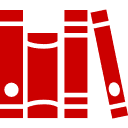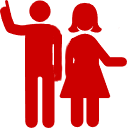 Get REAL! - Resources
Get REAL! - Resources
 Books
Books
Basic Montessori: Learning Activities for Under-Fives, by David Gettman. New York, NY: St. Martin’s Press (1987)
This book begins with a brief history of Dr. Montessori and discusses the theories and principles of Montessori education. Thereafter, the author introduces traditional Montessori activities by grouping them into five Montessori subjects, which include practical activities, sensorial activities, language activities, mathematics activities, and culture activities. Each activity is organized in the order of aim, material, presentation, and exercises. This book is for parents and educators who are interested in more traditional and profound Montessori theory based activities (not Montessori-style or -inspired) that are performed at Montessori schools.
Montessori Learning in the 21st Century: A Guide for Parents and Teachers, by M. Shannon Helfrich. Troutdale, OR: New Sage Press (2011)
In this book, M. Shannon Helfrich makes a case that connects Dr. Montessori’s theories and latest neuroscientific findings on early childhood development. She also provides examples and insights supporting these claims drawing on her own experience as a Montessori teacher and teacher's trainer for almost 40 years. What makes this book fascinating is that she presented profound Montessori theories and principles and neuroscientific studies in enjoyable ways. This book validates how the more than hundred-year-old philosophy of Dr. Montessori of early childhood education can serve children of the 21st century by showcasing recent research findings and her own experience working with children.
Teach Me to Do It Myself: Montessori Activities for You and Your Child, by Maja Pitamic. New York, NY: Barron’s (2004)
Drawing on key Montessori principles of learning through active experience, this book presents step-by-step instructions of activities using readily available materials. The book covers areas of life skills, developing the senses, language development, numeracy skills, and science skills. The author also provides specific guidelines to consider when parents present activities and children perform activities. Although the book is aimed at parents who wish to teach Montessori activities to their children, teachers who are interested in Montessori activities can also benefit from this book by performing them with their students in class.
The Montessori Controversy, by John Chattin-McNichols. Albany, NY: Delma (1998).
Drawing on personal experience as a Montessori teacher and with teacher education and research on Montessori, the author discusses the controversy around Montessori education. The author argues for the importance of the need for understanding and applying Montessori education in the contemporary U.S. context and terms. This book does a remarkable job in situating and understanding Montessori theories and practices in contemporary Montessori classrooms, and in addressing important issues around them.
The Montessori Way: An Education for Life, by Paul Epstein and Tim Seldin. Montessori Foundation Press (2003)
The Montessori Way is an in-depth, yet easy-to-read explanation of Montessori education in layperson's terms, from the early years through to secondary school. This book offers observations of the child in contemporary elementary and secondary schools, as well as the more familiar 3- to 6-year-olds in preschool settings. Everything explained is accompanied by numerous illustrations and photographs, including children demonstrating use of the Montessori materials. Curricula topics include Montessori's hands-on approach to science, foreign languages, arts and health, wellness and physical education. Special Needs are covered in the chapter called Learners with Exceptionalities, which includes 'essential questions' for the Montessori parent and school. The chapter section concludes with in-depth examples of how individual children learn in the Montessori environment.
Montessori Today: A Comprehensive Approach to Education from Birth to Adulthood, by
Paula Polk Lillard. New York: Schocken Books (1996)
Paula Lillard, director of a Montessori school ranging in age from 18 months to fifteen years, provides a clear and cogent introduction to the Montessori program for the elementary and later years. In detailed accounts, Lillard shows how children acquire the skills to answer their own questions, learn to manage freedom with responsibility, and maintain a high level of intellectual stimulation by using the Montessori method. This is an essential handbook for parents and teachers who have chosen the Montessori alternative for the older child.
Montessori: The Science Behind the Genius, by Angeline Stoll Lillard. New York: Oxford University Press (2005)
Over one hundred years ago, Maria Montessori, one of the first female physicians in Italy, devised a very different method of educating children, based on her observations of how they naturally learn. In this book, Angeline Stoll Lillard shows that science has finally caught up with Maria Montessori. Lillard presents the research behind eight insights that are foundations of Montessori education, describing how each of these insights is applied in the Montessori classroom. Amid the clamor for evidence-based education, Lillard presents the studies that show how children learn best, makes clear why many traditional practices come up short, and describes an ingenious alternative that works.
Nurturing the Spirit in Non-Sectarian Classrooms, by Aline D. Wolf. Altoona: Parent-Child Press (1996)
This book explains how the fundamental purpose of Maria Montessori's work was to bring about a more peaceful world by nurturing the spirit of the child. Aline Wolf includes discussion about such important issues as: What is the meaning of the word spirit? How is nurturing the spirit fundamentally different from teaching a specific religion? How can we nurture the spirit in non-sectarian classrooms? How can teachers become spiritually aware? and How can we explain spiritual nurturing to parents? This book is also available in Spanish.
Children Who are Not Yet Peaceful: Preventing Exclusion in the Early Elementary Classroom,
by Donna Bryant Goertz Berkeley. North Atlantic Books (2001)
Charting the progress of twelve children in a real Texas classroom, educator Donna Goertz shows how positive change can occur given the proper environment. In each case she describes a child's transformation from destructive troublemaker to responsible citizen of the classroom community. Readers will learn how to apply Montessori methods to virtually any early elementary environment.
 Websites
Websites
The American Montessori Society: http://www.amshq.org
The North American Montessori Teacher's Association: http://www.montessori-NAMTA.org
The Montessori Foundation: http://www.montessori.org
Free Montessori Resources:
Montessori for Everyone - free downloads
The Little List - free downloads
The National Center for Montessori in the Public Sector
Youtube Videos on Montessori
Montessori Vs. Conventional School
Looking to Montessori to Guide Education Reform: Anna Lee at TEDxMidAtlantic
 Journal
Journal
Banks, K., & Maixner, R. A. (2016). Social justice education in an urban charter Montessori school. Journal of Montessori Research, 2(2), 1-14.
Debs, M., & Brown, K. E. (2017). Students of color and public Montessori Schools: A review of the literature. Journal of Montessori Research, 3(1), 1-15.
Lillard, A. S. (2012). Preschool children's development in classic Montessori, supplemented Montessori, and conventional programs. Journal of School Psychology, 50(3), 379-401.
Lillard, A. S., & Else-Quest, N. (2006). The early years: Evaluating Montessori education. Science, 313(5795), 1893-1894.





